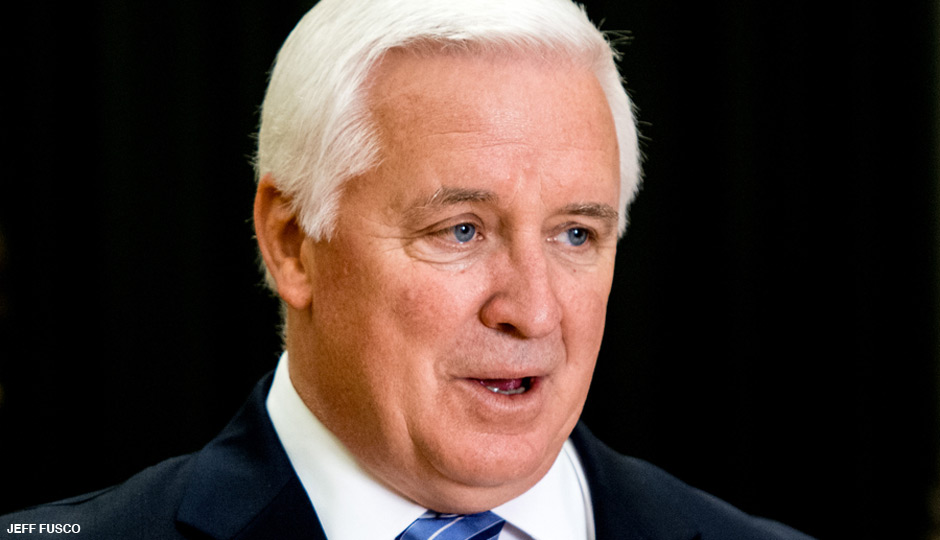Will $45 Million Buy the Governor a Transportation Bill?
Yesterday’s announcement that Gov. Corbett would release $45 million in education spending was met with both relief and confusion. Since disclosing the money’s existence in spring—the $45 million came from the forgiveness of a loan by the federal government—Corbett has leveraged it as one of his main bargaining chips, promising its return to the city only when his notoriously vague demands for ”academic reforms” had been met. Immediately after Superintendent William Hite issued a directive yesterday that principals do not have to use seniority as the sole determining factor in making hiring decisions, Corbett announced that his office would make the money available.
“Significant progress has been made that allows me to confer with my secretary, and we have decided to release the $45 million,” he told a press conference yesterday.
But Hite had already suspended portions of the seniority rule in August in order to hire back some teachers and staff. And just days before Hite’s first move against seniority, Corbett’s budget secretary said that the money would remain locked away until the teachers’ union signed a new contract codifying those “academic reforms,” which didn’t happen here.
Sources in Harrisburg say that the $45 million is no longer a piece of leverage in Corbett’s education reform plan, but in his bid to pass SB1, the $2.5 billion transportation bill championed by the governor and passed widely by the State Senate but that has languished in the House since last season. A vote on the bill that was expected this week now looks increasingly unlikely, and its continued delay is surely making Corbett antsy.
SB1 is a huge deal, both for Corbett’s career and for the state itself. The bill includes massive and crucial infrastructure repairs, including on structures used by SEPTA, which has announced variations of cutback budgets ranging from route-trimming to apocalyptic in order to prevent viaducts and bridges from collapsing under the weight of its trains.
For Corbett, the stalemate over transportation—the third prong of Corbett’s main agenda, which also includes education reform and liquor privatization—comes at a time when even his own party is said to be exploring the possibility of replacing him in the next gubernatorial election. His approval rating has plunged to an incredible 17 percent (and 11 percent on his home turf of Allegheny County), and the rest of his term is, at this point, a generally accepted failure. SB1 would be a badly needed booster shot.
In another time—one of less partisan divisiveness and stronger leadership in the state legislature—such a bill would have had a brief, smooth journey through the legislative process. But the transportation bill has been thwarted by both the radical Grover Norquist element of the Republican Party, who oppose any and all spending increases (which SB1 includes) and Democrats, some of whom disapprove of what they feel is insufficient funding in the bill, and others who want to see Corbett’s approval rating sink even lower by watching his last piece of signature policymaking wither away.
The problem for Corbett is not simply that he himself is ineffectual. It is that few in Harrisburg are, and reasonable policies hashed out by the governor and the Senate must contend with the House, which has become increasingly akin to a mutinied pirate ship with no head pirate. Corbett is attempting to pass a major bill in the era immediately after the reign of jailed dealmakers Speaker John Perzel (R-Phila.) and State Sen. Vince Fumo (D-Phila.), who tended to prevented these sorts of blockades from happening through their effective mix of persuasion and coercion.
Without them, Corbett has been essentially left to bargain with the people he has alienated on both sides, and so, the theory goes, the $45 million was one of the only tools he had left.
We’ll see what happens if SB1 finally comes up for a vote next week.



